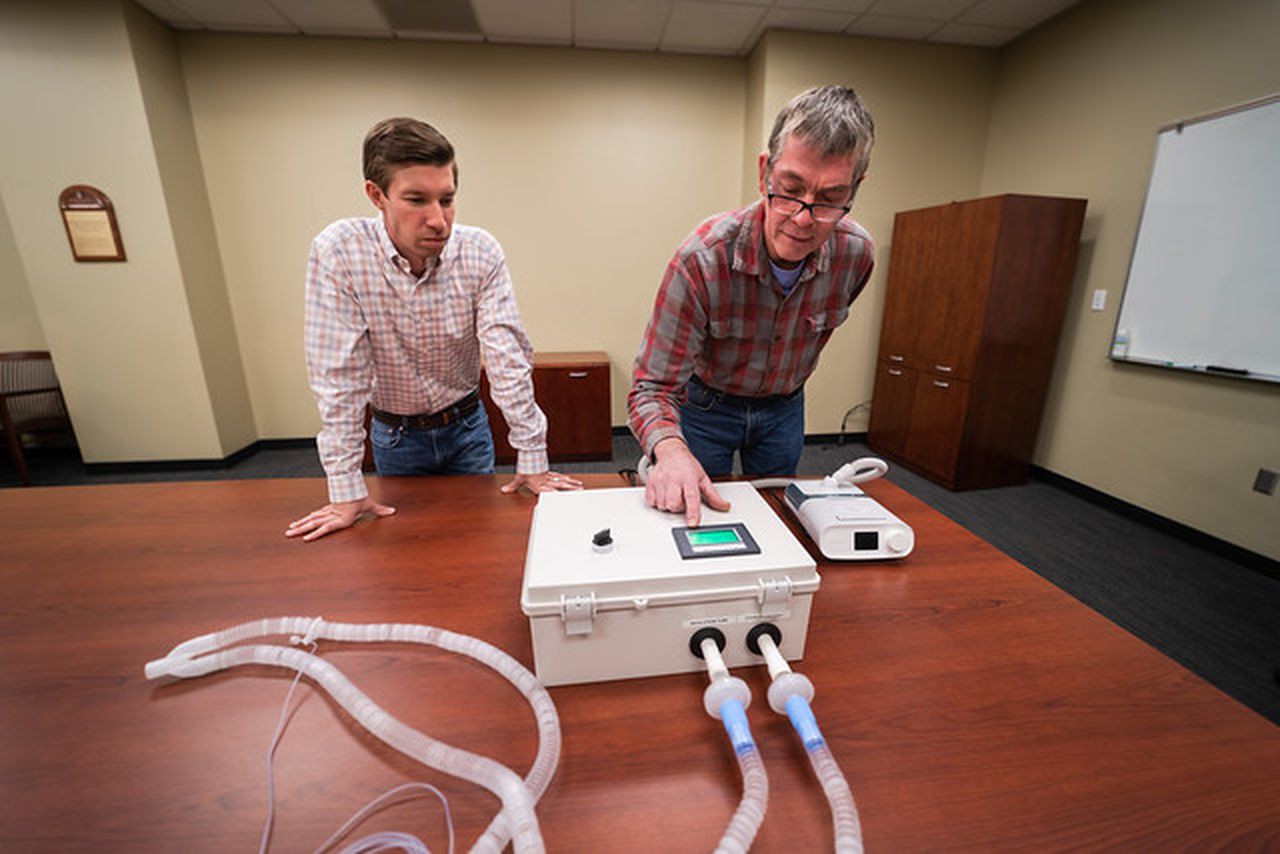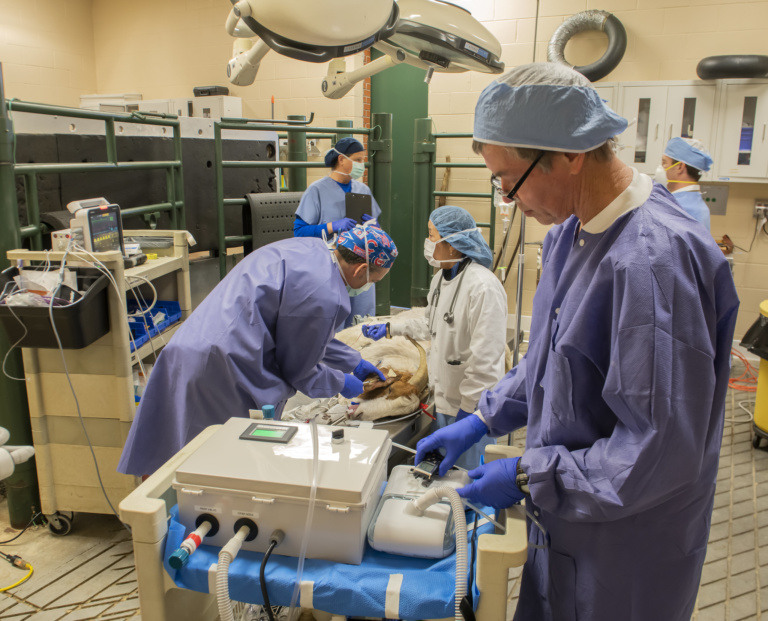This post originally appeared on AL.com.
A team of engineers at Auburn University have developed an attachment to easily convert CPAP machines into ventilators in response to the COVID-19 pandemic.
Michael Zabala, an engineering professor at Auburn, and his colleagues spent the last two weeks in his home garage developing the RE-INVENT attachment after learning about the United States ventilator shortage.
The device can be used with a CPAP, continuous positive airway pressure machine used to treat sleep apnea, to assemble ventilators to treat patients with COVID-19.
According to the Alabama Hospital Association, there are 1,344 ventilators in the state, 546 of which are already in use each day, leaving about 800 available ventilators to treat patients with coronavirus.
Zabala said he was inspired to begin work to manufacture a way to create more ventilators after talking with an attorney in Birmingham who brought the ventilator shortage to his attention. A biomechanics engineer by education, Zabala said he was unknowingly prepared for the task last summer in Florence, Italy when he taught a course on the biomechanics of art.
“I spent a lot of time developing a two-hour lecture on the biomechanics of singing, which educated me tremendously in the area of the anatomy associated with breathing and the physics that go behind it and other areas of the field that really I think paid off in this particular process,” Zabala said.
The RE-INVENT device can be assembled in four hours with $700 in component parts in addition to a standard CPAP machine. The emergency ventilator system is made up of the CPAP machine, the RE-INVENT valve assembly and tubing used in ventilators.
The group of Auburn engineers worked with Dr. Glenn Woods, an anesthesiologist in Auburn, to develop the device and is in the process of working with a local company in Auburn to help start manufacturing the devices.
“This process has given me hope,” Zabala said. “It’s given me hope because I’ve seen so many people come together for the common good and to recognize this dire need, and to be willing to sacrifice, not just their time but their families’ time.”
Auburn is currently working with the U.S. Food and Drug Administration to find a way to manufacture and distribute the RE-INVENT device to increase the availability of ventilators.




